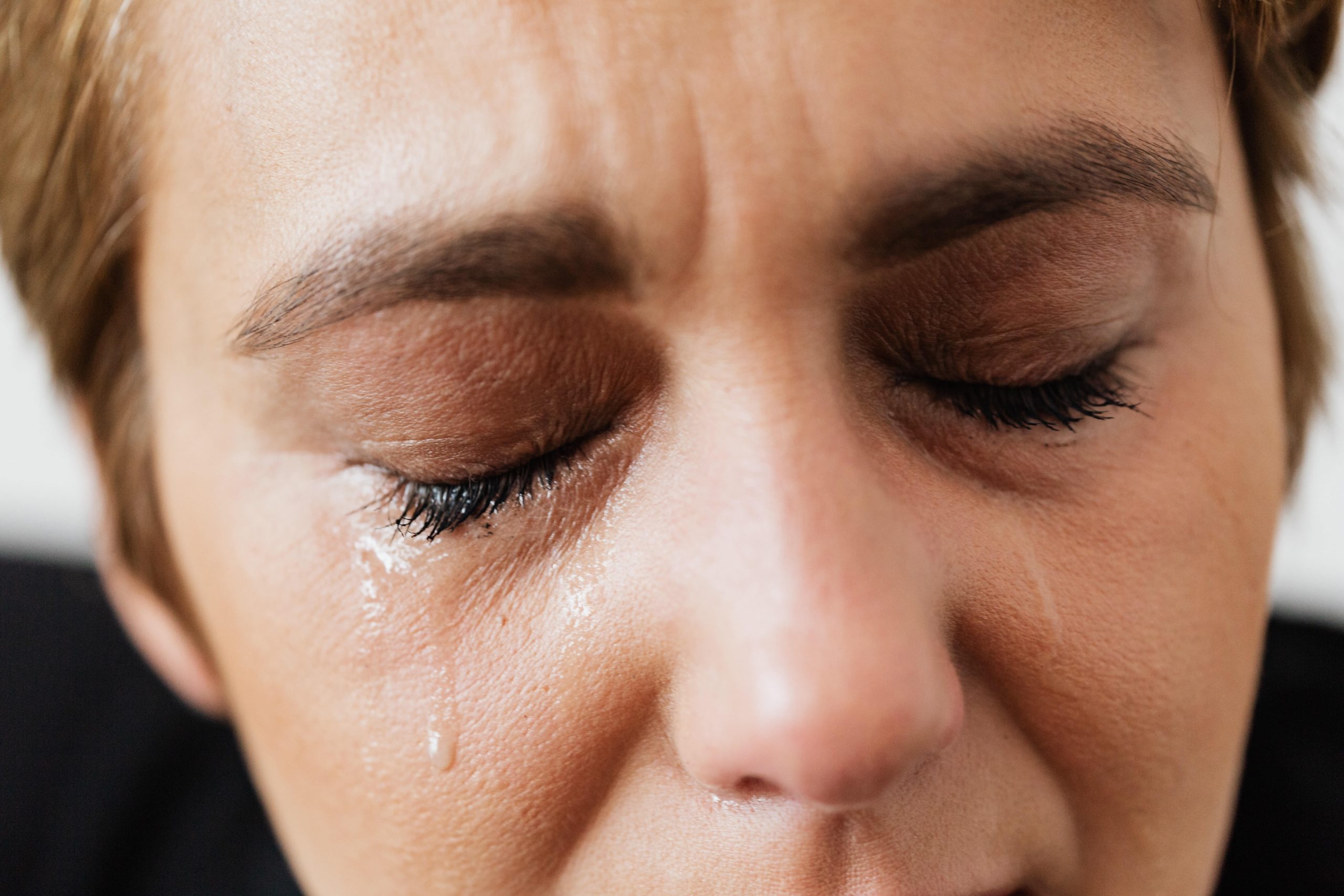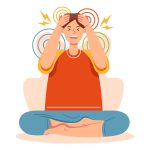
Understanding Your Options for Atypical Depression Treatment
You’ve probably heard of depression before, but you might not have heard of atypical depression. This sub-variant leads to more inconsistent mood symptoms, which can make people think that they don’t have depression at all. And it tends to afflict people with another psychiatric diagnosis, like bipolar disorder or cyclothymia. Let’s dig into what atypical depression is and your treatment options.
Depression is a mood disorder that makes you lose interest in the things you used to enjoy. But it comes in many forms and looks and feels different for different people. The Diagnostic and Statistical Manual lists five main variations, which are:
- Disruptive Mood Dysregulation Disorder
- Major Depressive Disorder (MDD)
- Persistent Depressive Disorder (or dysthymia)
- Premenstrual Dysphoric Disorder
- Depressive Disorder Related to a Medical Condition
Each of these mood disorders share similar symptoms. People with all forms of depression share sadness, irritability, and somatic or cognitive changes. Yet their treatment options may be different because of the root cause of their symptoms.
Atypical depression is categorized under Major Depressive Disorder, yet there are some specific symptoms that make it distinct from others on the list. Between 15% and 36% of depressed people are thought to have atypical depression. And its differences mean that you may get different treatments recommended.
Transcranial Magnetic Stimulation (TMS) is an innovative treatment that uses magnetic impulses to change the brain. We use it to help people with treatment-resistant depression, Post-traumatic stress disorder, bipolar disorder, and more. KarmaTMS is an integrative psychiatric and TMS treatment center in Palm Desert, California.
Depression is different for everyone. Maybe you’ve looked up the symptoms of depression and felt like they didn’t represent your situation. Maybe you’ve tried medications and therapy without relief. To give you more information about depression variations and their options, we’re getting into what atypical depression is and your treatment options.
What Is Atypical Depression?
“Atypical” doesn’t mean that this form of depression is strange or unusual. It just means that you may experience the symptoms you normally associate with depression, along with a few others. Here are some additional symptoms someone with atypical depression may experience:
- Temporary mood improvements, which may be mistaken for permanent changes in the moment. It’s sometimes called mood reactivity. This is usually in response to real or potential positive life events.
Because these fluctuations in mood happen in addition to regular depression symptoms, atypical depression is sometimes called major depression with atypical features. In addition to mood reactivity, having two or more of the following symptoms may mean your depression is atypical:
- Appetite increases and weight changes
- Sleeping excessively
- Feeling heavy in your legs and arms
- Feeling very sensitive to criticism or rejection, which leads to problems in your social life and at work
These added symptoms define atypical depression. But let’s break down the key differences between atypical and Major Depressive Disorder.
What’s the Difference Between Typical and Atypical Depression?
Major depressive disorder (or more “typical” depression) is more like atypical depression than not. They share most of their characteristics. To understand the core differences between Major Depressive Disorder and atypical depression, refer to the chart below:
| Symptom | Major Depressive Disorder | Atypical Depression |
|---|---|---|
| Sadness | Yes | Yes |
| Emptiness/Loss of interest | Yes | Yes |
| Irritation | Yes | Yes |
| Memory problems and other cognitive changes | Yes | Yes |
| Mood reactivity | Maybe | Yes |
| Increase in appetite and weight | Maybe | Yes |
| Excessive sleeping | Maybe | Yes |
| Feeling heavy in the legs and arms | Maybe | Yes |
| Very sensitive to rejection and criticism | Maybe | Yes |
Since atypical depression is a sub-category within major depressive disorder, they have a lot in common. But keep in mind that you don’t have to have every single one of these symptoms for months before getting help. You only need two of the extra atypical symptoms to qualify as atypically depressed. If you’ve felt sad or empty for two weeks or more, it’s not too early to speak with a professional.
Major Depressive Disorder and atypical depression are pervasive, painful mood disorders that make regular life so much harder. Both may require treatments like medications, therapy, TMS, lifestyle changes, and more. But before we start talking about treatment, let’s understand who is most likely to be impacted by atypical depression.
Who Is Most at Risk for Atypical Depression?
Atypical depression can happen to people regardless of gender, age, or history. But certain people are more at risk. Atypical depression can also put you more at risk for other mental health diagnoses, like bipolar disorder. Atypical depression happens more commonly within these groups of people, although anyone can suffer with this disorder:1
- Women (and people who are assigned female at birth) are more than twice as likely to show symptoms of atypical depression compared to men.
- Atypical depression tends to begin in the early teens to mid-twenties, so people within this age group should be aware of its symptoms.
- People with a history of other mood disorders, such as bipolar and anxiety, may be more at risk for developing atypical depression.
- Those with a history of trauma, such as abuse or major injuries, may also have an increased risk for atypical depression.
- Anyone with a history of substance abuse is more at risk for depression and atypical depression.
Early treatment can help prevent atypical depression from spiraling out of control. So let’s talk about what treatment for atypical depression may look like.
How Do You Deal With Atypical Depression? The Next Steps and Treatment
Atypical depression is most commonly treated with psychiatric medications and psychotherapy. If you haven’t been diagnosed yet, your psychiatrist will do a thorough symptom evaluation before starting treatment.
Antidepressant medications are commonly prescribed for atypical depression. These include Selective Serotonin Reuptake Inhibitors (SSRIs) and Monoamine Oxidase Inhibitors (MAOIs).
In addition to medications, seeing a psychotherapist may help you understand your thoughts and make positive changes. Combining medications and therapy is still the first-line treatment for depression.
Yet there are still people who don’t get relief from medications and therapy for their depression, and this is incredibly frustrating. Luckily there are more options for treatment-resistant depression today than ever before. We specialize in helping these people recover from depression and other mental health diagnoses. So let’s talk about TMS for atypical depression as a treatment option for you.
Does TMS Work for Atypical Depression?
Atypical depression hasn’t been studied separately from Major Depressive Disorder in relation to TMS. But since the two are similar, we can expect similar outcomes for people with atypical depression. In recent research, up to 70% of people with depression noticed that their symptoms improved after TMS.
What’s more, TMS doesn’t just help with “standard” symptoms of depression like sadness and anger. It’s also been shown to improve other mental health problems and diagnoses. In trials, TMS not only helped with depression symptoms but with these parallel symptoms as well.6 So it’s pretty promising that TMS therapy can continue to help treat atypical depression.
If you think you have atypical depression and want to get treatment, or you’re interested in TMS therapy, what are your next steps?
KarmaTMS: Your TMS Therapy Resource
The KarmTMS team is your resource for evidence-based information about integrative mental health and TMS therapy. No matter where you are on your mental health journey, we can help. We work hard to make sure you have all the information you need to make informed decisions about your health.
Check out these resources for learning more about atypical depression and treatment:
- If you’re interested in learning more about the sign of depression, read these informative articles on how depression affects the brain and knowing the difference between depression and sadness.
- If you’re looking for a new psychiatric treatment partner and you want to learn more about our practice, you can read about our services or view our provider’s page.
- If you’re ready to get started on your integrative psychiatric treatment plan, use the Book Online button at the top right of our homepage.
Atypical Depression: You’re Not Alone
Atypical depression is a painful thing to struggle with. Its symptoms can make life feel like a rollercoaster of hope and helplessness. And the reality is that standard treatment options aren’t working for many people.
The good news is that wherever you are in your depression journey, you’re not alone. All forms of depression can make you feel like you’re struggling all by yourself. But the team at KarmaTMS and KarmaDocs are here for you, whether you need support for atypical depression or any other mental illness.
Resources:
Chand SP, Arif H. Depression. [Updated 2022 Jul 18]. In: StatPearls [Internet]. Treasure Island (FL): StatPearls Publishing; 2022 Jan-. Available from: https://www.ncbi.nlm.nih.gov/books/NBK430847/
Łojko D, Rybakowski JK. Atypical depression: current perspectives. Neuropsychiatr Dis Treat. 2017 Sep 20;13:2447-2456. doi: 10.2147/NDT.S147317. PMID: 29033570; PMCID: PMC5614762.
Atypical depression: What it is, symptoms & treatment. Cleveland Clinic. (2023, February 15). Retrieved February 21, 2023, from https://my.clevelandclinic.org/health/diseases/21131-atypical-depression
U.S. Department of Health and Human Services. (n.d.). Depression. National Institute of Mental Health. Retrieved February 21, 2023, from https://www.nimh.nih.gov/health/publications/depression#:~:text=How%20is%20depression%20diagnosed%3F,pleasure%20in%20almost%20all%20activities.
Rush, J. A. (2022, July 25). Patient education: Depression treatment options for adults (Beyond the Basics). UpToDate. Retrieved February 21, 2023, from https://www.uptodate.com/contents/depression-treatment-options-for-adults-beyond-the-basics#:~:text=TREATMENT%20FOR%20MAJOR%20DEPRESSION%20For,either%20treatment%20on%20its%20own.
Thompson L. Treating major depression and comorbid disorders with transcranial magnetic stimulation. J Affect Disord. 2020 Nov 1;276:453-460. doi: 10.1016/j.jad.2020.07.025. Epub 2020 Jul 15. PMID: 32871677; PMCID: PMC7505211.



